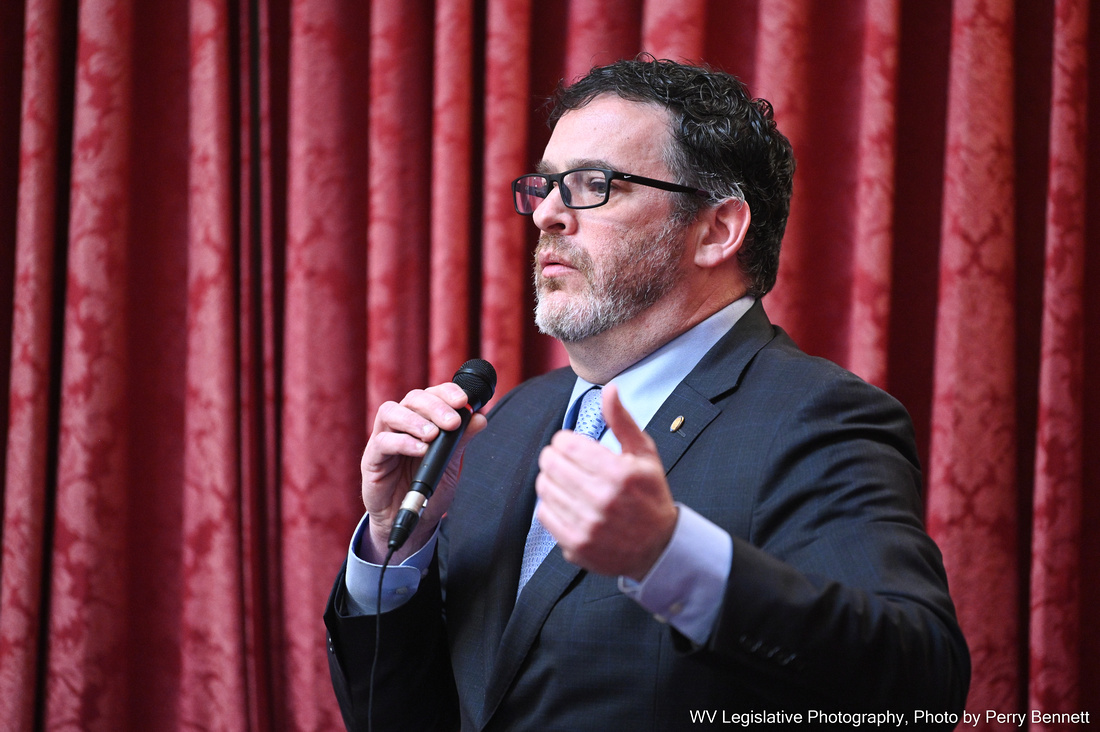A bill that looks at religious freedom was up for a final vote in the West Virginia House of Delegates Monday.
House Bill 3042 is called the Religious Freedom Restoration Act (RFRA) and is similar to a bill that failed in the West Virginia Legislature in 2016.
Supporters argue the state needs the law so residents can challenge government regulations that interfere with their religious beliefs.
Those in opposition say the proposal will be used to discriminate against LGBTQ people and other marginalized groups.
Del. Mike Pushkin, D-Kanawha, attempted to amend the bill twice. One proposal would have required businesses to post signage in their windows saying what kind of people they would not serve. Pushkin’s amendments ultimately failed.
During full debate of the bill, Pushkin argued what he felt were the true intentions of the legislation.
“This is about whether or not somebody should be able to be kicked out of their apartment because they’re gay, somebody should be fired from their job because they’re gay, somebody’s refused service in somebody’s store simply because they’re gay,” Pushkin said. “If you believe that, go ahead and vote for it. I think you’re better than that. Vote against this garbage.”
Some delegates, such as Del. Todd Kirby, R-Raleigh, argued the intent of the bill is to protect individuals, such as school teachers, from having to speak in support of lifestyles they don’t agree with.
“Such things as promoting transgenderism, homosexuality, in our classrooms, in our grade school classrooms,” Kirby said. “And these policies are sold to the American public and to the labor unions, the teachers unions, as being open, which that may be the intention. But what is happening is these teachers and administrators rights are being violated. Their religious beliefs are being infringed upon, because they’re being forced and compelled to speak in a way that violates their religious beliefs.”
Other delegates in opposition argued the bill could cause medical discrimination if a doctor or pharmacist doesn’t agree with a patient’s lifestyle.
“Let’s say somebody, an unmarried woman, comes in for birth control. Can a pharmacist refuse to fulfill that prescription?” asked Del. Evan Hansen, D-Monongalia. “What if a gay man comes in for an HIV pill? Can they refuse to fulfill that prescription? I think that’s what this is about. It’s about whether a doctor can refuse medical care.”
The bill’s lead sponsor, Del. Jonathan Pinson, R-Mason, told the body the law would not determine what is right and wrong but rather create a judicial process in state code for situations where religious freedom comes into question.
“We’re not determining something to be illegal,” Pinson said. “Rather, we’re creating a judicial test. We’re giving statutory instructions to the judiciary, that when a RFRA case where someone would allege that a law that we pass in this body or a local municipal ordinance or county ordinance is in violation of their religious conviction, that the judiciary is to use this to point us to a two question test: number one, is their compelling state interest? And number two, is the state acting in the least restrictive means possible?”
The House debated House Bill 3042 for more than an hour, and it passed 86 to 12.
It now goes to the Senate for consideration.
